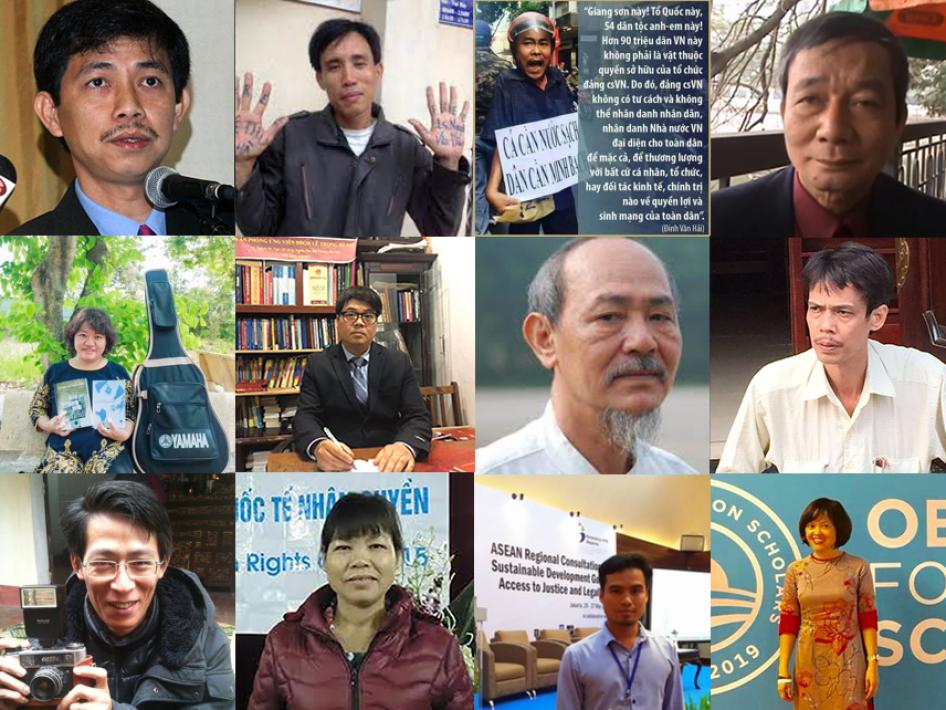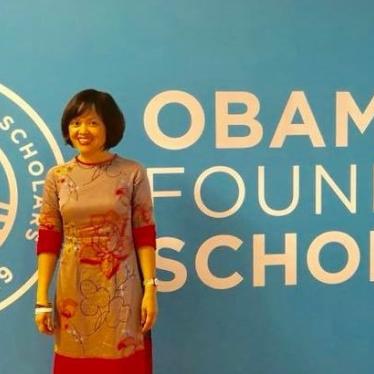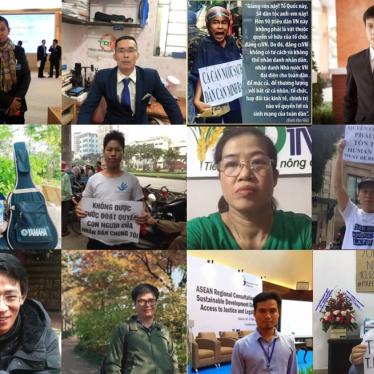(Geneva) – The Vietnamese government should face close scrutiny at its upcoming United Nations Universal Periodic Review (UPR) for its deepening crackdown on activists and failure to reform abusive laws, Human Rights Watch said today in a submission to the UN.
The UN Human Rights Council will hold Vietnam’s fourth UPR in 2024 in Geneva. Vietnam’s human rights record has worsened significantly since its last appearance at the UPR in January 2019.
“Vietnam’s rights violations show that the government’s promises to the European Union and other governments on human rights count for nothing,” said Elaine Pearson, Asia director at Human Rights Watch. “The government’s systematic repression of civil and political rights deserves a much tougher response from international donors and trade partners who have been willing to look the other way to advance a deemed strategic interest. They should recognize that promoting rights in Vietnam is in their strategic interest.”
Human Rights Watch listed several major human rights issues in its submission that Vietnam should immediately address. The authorities continue to prosecute people for exercising their rights to free expression, freedom of association, and peaceful assembly. Violations of due process and fair trial rights are commonplace in cases involving both ordinary criminal suspects and political dissidents. And the government carries out ongoing repression of the right to freedom of religion and belief. Vietnam should accept and implement recommendations to address each of these concerns.
Vietnam has expanded its repression to include mainstream activists working on environmental and climate change issues. The authorities have used bogus tax evasion charges to prosecute environmental campaigners such as the lawyer Dang Dinh Bach, who is serving a five-year prison sentence. On September 28, 2023, a court convicted and sentenced the environmental advocate Hoang Thi Minh Hong to three years in prison and imposed large fines. On September 15, just five days after United States President Joe Biden visited Hanoi, police detained Ngo Thi To Nhien, director of a research agency working on just energy transition issues, and charged her for allegedly “appropriating documents” from another company under article 342 of the penal code. Two other people were also arrested and charged under the same suspicion. The company that they are accused of appropriating internal documents from is the National Power Transmission Corporation, which is under the state-owned Electricity of Vietnam.
During Vietnam’s third UPR cycle in 2019, the government rejected all recommendations to amend rights-violating “national security” articles 109, 117, and 331 in the penal code. Between 2019 and 2023, the authorities prosecuted at least 139 people under these draconian legal provisions, simply for speaking up against injustice, criticizing the government, or supporting fellow activists. Among those imprisoned under these legal articles are prominent free-speech activists, including Pham Doan Trang, Pham Chi Dung, Nguyen Tuong Thuy, Pham Chi Thanh, Pham Van Diep and Nguyen Lan Thang.
At the UPR review in 2019, Vietnam accepted recommendations to amend the criminal procedure code to guarantee due process and fair trials, and “abolish the practice of [mobile] outdoor trials,” but did nothing to fulfill its pledges. Political suspects are still treated unfairly and detained for months without access to legal counsel, or visits by family members. The authorities have continued their mobile outdoor trials, which unnecessarily traumatize defendants and their families.
Human Rights Watch found that between 2019 and 2023, Vietnam conducted “mobile trials” in at least 55 provinces – 95 percent of the country’s provinces – and the five main cities of Hanoi, Hai Phong, Can Tho, Ho Chi Minh City, and Da Nang. In 2022, Thai Nguyen province alone held 105 “mobile trials” in public spaces. During the first nine months of 2023, Nghe An province carried out 51 “mobile trials.”
In both political and non-political cases, the police, prosecutors, and courts violate the fundamental principle of presumption of innocence in a fair trial before an independent court.
During its 2019 UPR, Vietnam pledged “to safeguard freedom of religion and belief for all in Vietnam,” and “protect religious and ethnic minorities, and refrain from imposing legal restrictions on them.” But Vietnam failed to implement either of these accepted recommendations.
Between 2019 and 2023, Vietnam subjected followers of independent religious groups – especially in the remote Central Highlands – to harassment, intimidation, forced renunciation of faith, public denouncement, bullying interrogation, physical assaults, and arbitrary arrests, detention, and prosecution.
“The EU and the US are remaining quiet about Hanoi’s horrific human rights record at the expense of the Vietnamese people,” Pearson said. “UN member countries should not wait until the next UPR session for Vietnam to respect rights, but press now for real changes like political prisoner releases and reform of rights-abusing laws.”









